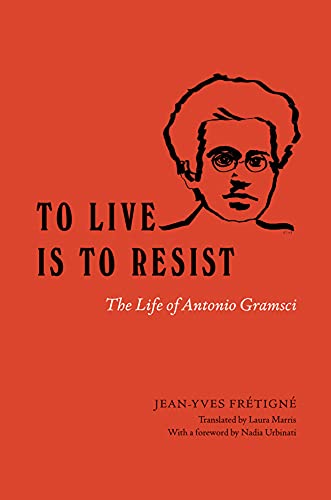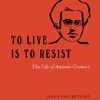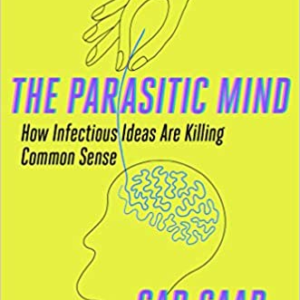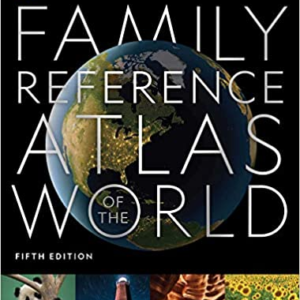To Live Is to Resist: The Life of Antonio Gramsci Hardcover – February 11, 2022 by Jean-Yves Frétigné
HARDCOVER
[328 pages]
PUB: 9780226719092
Description
Author: Frétigné Jean-Yves
Package Dimensions: 0x229x788
Number Of Pages: 328
Release Date: 11-02-2022
Details: Product Description
This in-depth biography of Italian intellectual Antonio Gramsci casts new light on his life and writing, emphasizing his unflagging spirit, even in the many years he spent in prison.
One of the most influential political thinkers of the twentieth century, Antonio Gramsci (1891–1937) has left an indelible mark on philosophy and critical theory. His innovative work on history, society, power, and the state has influenced several generations of readers and political activists, and even shaped important developments in postcolonial thought. But Gramsci’s thinking is scattered across the thousands of notebook pages he wrote while he was imprisoned by Italy’s fascist government from 1926 until shortly before his death.
To guide readers through Gramsci’s life and works, historian Jean-Yves Frétigné offers
To Live Is to Resist, an accessible, compelling, and deeply researched portrait of an extraordinary figure. Throughout the book, Frétigné emphasizes Gramsci’s quiet heroism and his unwavering commitment to political practice and resistance. Most powerfully, he shows how Gramsci never surrendered, even in conditions that stripped him of all power—except, of course, the power to think.
Review
“If, as Primo Levi so presciently warned us in 1974, ‘every age has its own fascism,’ it follows that every age needs its own Gramsci. And Jean-Yves Frétigné has given us a Gramsci for our perilous times. This lucidly translated biography traces an intellectual, political, and personal drama that passes through Sardinia, Turin, the Stoics, Spinoza, Machiavelli, Vico, Leopardi, and Marx. We come to understand the origins and explicatory power of Gramscian terms such as ‘subalternity,’ ‘hegemony,’ ‘organic intellectuals,’ and ‘pessimism of the intellect, optimism of the will.’ The epilogue poignantly renders the pathos of Gramsci’s last years. Most importantly, the reader will be inspired by a life and mind that insisted on a participatory and permanent resistance against the seemingly natural order of things.”
―
Stanislao Pugliese, Hofstra University
“Gramsci’s political, personal, and prison lives are the source of renewed debate in the neoliberal postcommunist era, with archival finds, speculative conjectures, and ideological polemics. This fine translation of
To Live Is to Resist offers a concise narrative of Gramsci’s life as well as an informed and balanced account of the biographical controversies.”
―
Michael Denning, Yale University
About the Author
Jean-Yves Frétigné is
maître de conférences in the department of history at the University of Rouen in Normandy, France. He is the author of several books published in French and Italian. This is his first book published in English.
Laura Marris is a poet, essayist, and translator. Her recent translations include Albert Camus’s
The Plague, Geraldine Schwarz’s
Those Who Forget, and Louis Guilloux’s
Blood Dark.
Excerpt. © Reprinted by permission. All rights reserved.
As a small child gifted with a sharp intelligence, Antonio was pampered by his family so he could overcome his illness and continue his studies. Nino was allowed special treatment—every morning, he had an egg beaten with sugar and marsala wine, a small piece of white bread, and coffee, while his brothers and sisters had to content themselves with a slice of black bread and a sad, barley-based brew. Because of his illness, Antonio didn’t start at the Sorgono school, which was run by nuns, until the autumn of 1898, when he was already seven and a half. Though his grades were excellent and he was always first in his class, he was forced to interrupt his studies for two years to help his brother in the surveyor’s office. He studied just as hard on his own, sacrificing hours of sleep so he could learn the basics of Latin. His mother always managed to support him, patiently reading over her child’s work. Later on, from prison, he remembered these late afterno
Be the first to review “To Live Is to Resist: The Life of Antonio Gramsci Hardcover – February 11, 2022 by Jean-Yves Frétigné”
You must be <a href="https://webdelico.com/my-account/">logged in</a> to post a review.






























There are no reviews yet.